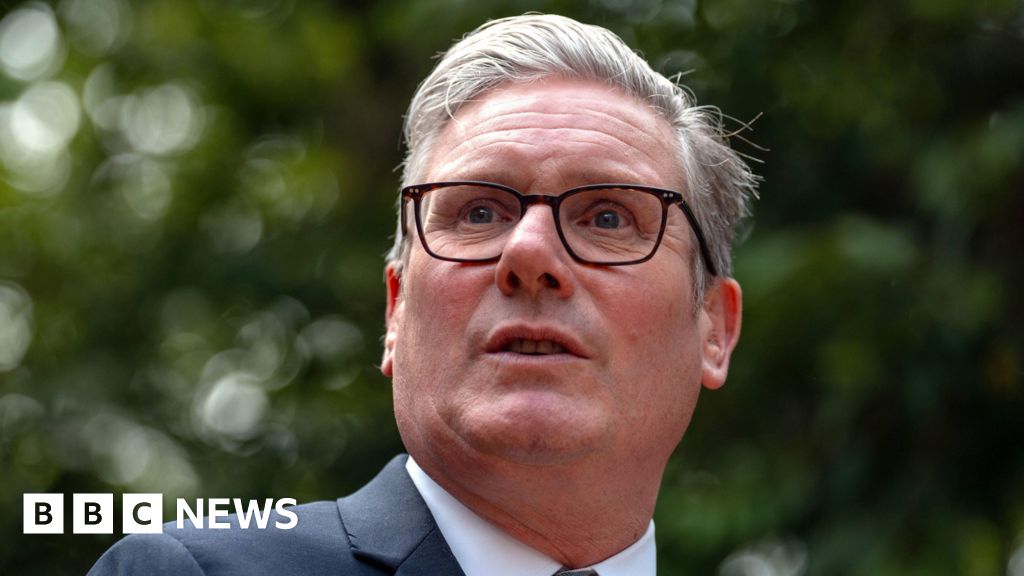125,000-year-old 'Fat Factory' Run by Neanderthals Discovered in Germany

Introduction
In a recent discovery, researchers have found evidence of a 125,000-year-old "fat factory" that was run by Neanderthals in Germany. This discovery sheds light on the extraordinary lengths that Stone Age humans went to in order to include fat in their diet.
Background
The research was conducted at a cave in Germany, where archaeologists found tiny stone tools and animal bones with cut marks. These tools were used by Neanderthals to extract fat from the bones of animals. It is believed that the Neanderthals used this fat as a source of energy and nutrition, as well as for medicinal purposes.
The Importance of Fat
Fat is an essential nutrient that provides energy and helps in the absorption of vitamins. In the past, when food was scarce, humans had to find alternative sources of fat to meet their nutritional needs. This discovery shows that Neanderthals were well aware of the importance of fat in their diet and were willing to go to great lengths to acquire it.
Similar Discoveries
This is not the first time that evidence of early humans' use of fat has been found. In 2018, a study revealed that Neanderthals used to hunt and butcher large animals for their fat and marrow. In addition, other research has shown that early humans used to extract fat from plants and insects as well.
The Impact of Early Human Diet
The discovery of this "fat factory" also provides insight into the diet and lifestyle of early humans. It shows that they had a diverse and balanced diet that included a variety of nutrients. This new information challenges the long-held belief that Neanderthals had a limited and unvaried diet.
Conclusion
This discovery is a significant addition to our understanding of early human evolution. It shows that Neanderthals were not just primitive beings, but rather intelligent and resourceful individuals. It also highlights the importance of fat in the human diet and how early humans were able to adapt and thrive in challenging environments.
References
1. CNN: 125,000-year-old 'fat factory' run by Neanderthals discovered in Germany
2. Reuters: Justice Department accuses two Chinese researchers of smuggling 'potential agroterrorism weapon' into US
3. BBC: Neanderthals hunted for their meat and marrow
4. Science Magazine: Neanderthals' versatile diet offers clues to their extinction
About the Organizations Mentioned
CNN
**CNN (Cable News Network)** is a pioneering 24-hour cable news channel founded by media mogul Ted Turner and launched on June 1, 1980. It revolutionized television news by providing continuous, live news coverage worldwide, breaking from the traditional scheduled news broadcasts prevalent at the time[1][3][4][5]. CNN's headquarters are in Atlanta, Georgia, where it remains a major hub for news production. **History and Growth:** CNN was born from Ted Turner’s vision to create the first all-news channel, despite skepticism from industry professionals. Starting with a modest team and resources, it grew rapidly, expanding its reach through cable, satellite, and digital platforms. In 1982, CNN introduced CNN2 (later HLN), the first news channel to use a "wheel" schedule, and in 1985 launched CNN International to serve global audiences[1][4][6]. The network gained significant prominence during events like the 1991 Persian Gulf War, offering real-time battlefield coverage that established CNN as a trusted news source[3][6]. CNN’s website, CNN.com, launched in 1995, was among the first major news websites, marking its early embrace of digital news delivery[6]. **Ownership and Business Evolution:** In 1996, CNN became part of Time Warner (later WarnerMedia), and subsequently Warner Bros. Discovery, reflecting its integration into a major media conglomerate[1][2][6]. The network has adapted to changing media landscapes, including cost-cutting measures announced in 2022 but maintaining a commitment to longform and investigative content[1]. **Key Achievements:** CNN is credited with shaping modern journalism through its live, around-the-clock news coverage and global bureaus. It has earned numerous awards for its reporting and has influenced the creation of similar 24-hour news channels. Its notable anchors and correspondents, such as Bernard Shaw and Christiane Amanpour, have contributed to its authoritative reputation[1]
Reuters
**Reuters** is a leading global news agency founded in 1851 by Paul Julius Reuter, a German immigrant who innovatively combined telegraphy and carrier pigeons to transmit financial and news information rapidly between cities like London and Paris[1][2][4]. Starting from a modest office in London’s financial district, Reuters quickly gained a reputation for speed, accuracy, and impartiality, exemplified by its early scoop on the death of U.S. President Abraham Lincoln in 1865, beating competitors by hours[1][2]. Historically, Reuters evolved from a commercial news service focused on stock prices for banks and brokerage houses to a comprehensive international newswire serving newspapers worldwide. Its expansion reflected the growing importance of timely, reliable news in business and global affairs[2][3]. The company’s independence and editorial integrity have been safeguarded since 1947 by the Reuters Trust Principles, which commit Reuters to unbiased and accurate reporting[4]. Today, Reuters operates as part of Thomson Reuters, a Canadian multinational headquartered in Toronto. It is recognized as the largest global news agency, with over 2,600 journalists in 165 countries producing around 2 million unique news stories annually in 12 languages[5]. Reuters embraces cutting-edge technology to deliver breaking news, multimedia, and authenticated content to media, technology firms, governments, and corporations, ensuring fast and seamless distribution[5]. Notable achievements include winning over 300 journalism awards in the last decade, such as the 2024 Pulitzer Prizes for National Reporting and Breaking News Photography, and the George Polk Award for Business Reporting, underscoring its leadership in business and technology journalism[5]. Reuters continues to innovate, recently unveiling AI tools to enhance video production and engagement, reflecting its commitment to shaping the future of news in a digital age[5].
BBC
## Overview The British Broadcasting Corporation (BBC) is the world’s oldest and largest national broadcaster, serving as a cornerstone of public service media in the United Kingdom and beyond[1][2]. Headquartered in London, the BBC operates under a royal charter and is primarily funded by a television licence fee paid by UK households, ensuring its editorial independence from both government and commercial interests[1][2]. This model allows the BBC to fulfill its mission to “inform, educate, and entertain” with impartiality at its core[3]. ## History and Evolution The BBC was founded on October 18, 1922, as the British Broadcasting Company Ltd., evolving into a public corporation under royal charter on January 1, 1927[1][2]. Its first Director-General, John Reith, established principles of independence and public service that continue to guide the organization. The BBC launched its television service in 1936, pioneering broadcasting technology, and expanded globally with the BBC World Service in 1932, now broadcasting in 28 languages[1][2]. ## Key Achievements The BBC has been a trailblazer in broadcasting, introducing innovations such as regular television broadcasts, color TV, and digital platforms like BBC iPlayer[1][2]. It has earned a reputation for high-quality journalism, producing globally recognized programs in news, drama, and documentary. The BBC’s international arm, BBC Studios, commercializes content worldwide, while the BBC World Service remains a vital source of news in regions with limited press freedom[1]. The corporation has received numerous accolades, including the Queen’s Award for Enterprise for its international business achievements[1]. ## Current Status and Digital Transformation With over 21,000 employees, the BBC remains a dominant force in media, generating £5.4 billion in annual income, mostly from licence fees[2]. It operates multiple TV channels, radio stations, and a robust online presence, including BBC News Online and BBC.com[1
Science Magazine
**Science Magazine** is a prestigious, peer-reviewed scientific journal published by the American Association for the Advancement of Science (AAAS). Founded in 1880 by journalist John Michels with financial backing from Thomas Edison and Alexander Graham Bell, it overcame early financial struggles to become the official journal of the AAAS in 1900, under the ownership of psychologist James McKeen Cattell[1][9]. Today, it holds the distinction of being one of the world’s largest circulation general science journals, with a print subscriber base of about 130,000 and an estimated readership of one million globally, due to extensive institutional subscriptions and online access[3][9]. The journal covers the full spectrum of scientific disciplines but places particular emphasis on biology and life sciences, reflecting the growth of biotechnology and genetics. It publishes original research and review articles, science-related news, and opinion pieces on science policy and broader technological implications[9]. Its rigorous peer-review process accepts fewer than 10% of submitted papers, underscoring its high standards and influence in the scientific community. Notable historic publications include seminal papers on fruit fly genetics by Thomas Hunt Morgan, gravitational lensing by Albert Einstein, and spiral nebulae by Edwin Hubble[1]. **Key achievements** of Science Magazine include pioneering influential scientific communication and contributing to the advancement of knowledge across disciplines. It has been a platform for landmark discoveries and shaped the dialogue on science policy and innovation. The journal’s impact factor was 30.927 in 2005, highlighting its scholarly influence[9]. Currently, Science operates from Washington, D.C., with an additional office in Cambridge, England, maintaining its status as a leading source for business and technology news within the scientific domain. Its enduring legacy and authoritative content make it an essential resource for researchers, policymakers, and professionals interested in cutting-edge scientific developments[9].










